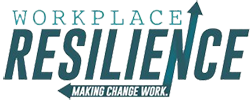 I think that we are in trouble. Let me explain.
I think that we are in trouble. Let me explain.
A friend was telling me a story the other day. She works in a store that is going out of business and she is amazed by the behavior that she witnesses daily. There are a number of announcements made when they are getting ready to close for the day, and as you can imagine, the workers in the store are looking forward to going home.
She reports that consistently, numerous shoppers will get in line at the very last minute before the doors are locked, with 30 items in tow. This means that they won’t get out of the store usually for another hour.
She finds this frustrating, rude and people don’t seem to even give this unkind behavior a second thought. Sadly, I don’t find it surprising in the least.
In order to take part in this behavior, you have to be focused on your own needs. You need to believe that your needs are more important than some stranger working late in the store. The moment you give thought as to what that other person might be experiencing, and imagine their feelings in the situation, your behavior would probably change.
It’s called EMPATHY and there seems to be an absence of it lately.
Now the reason that this doesn’t surprise me is because I’ve done some research on the subject. I became concerned about this lack of empathy watching people interact around me. Research done from 1979 to 2009 shows that “empathic concern” has declined by 48% and there was a steep decline from 2000 to 2009. The authors speculate that narcissism, prevalence of personal technology, media use in everyday life, shrinking family size and pressures on young people to succeed has contributed to this decline.
A baby is born with the genetic component to feel empathy. When you witness what happens to others, it activates your visual cortex and activates your emotions. In short, you have mirror neurons in your brain that overlap with other people’s actions-if your friend picks a flower, that part of your brain mirrors that. These neurons help you become more empathic toward others.
Empathy is the glue that holds societies together. It helps us thrive and grow in our communities. Then what’s the problem here? Research has shown that you are wired to feel more empathy toward people that resemble and look like you. This biological underpinning enabled us to stay alive many years ago. Today, it negatively impacts us and adds to our division in our communities.
This is in no way an excuse for why we do the things we do. As humans, we are capable of higher-level thinking and not leading with our instinctual response. And as humans, we are able to insist on social norms in our communities that reflect respect of others.
As a leader, there are things that you can do to positively impact this need for empathy. Insist on social norms that encourage empathy and kindness toward others. Model curiosity about others and listen to their stories. The more you understand individuals that are different from you, the more chance that the feeling of empathy will lead to changed behavior and a better community.




